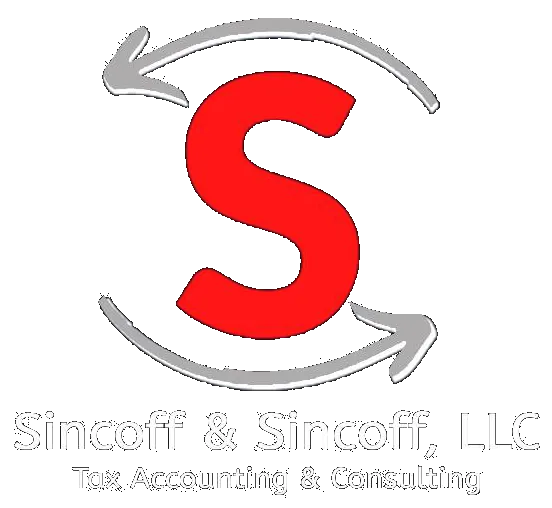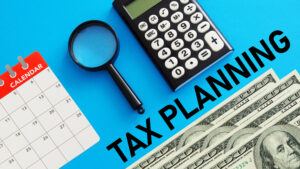Last February, I watched Mark, a self-employed contractor from Lakewood, walk into my office with three grocery bags full of crumpled receipts, faded invoices, and bank statements held together with coffee-stained rubber bands.
“I’ve been putting this off since January,” he confessed, not making eye contact. “My wife said either I deal with this or she’s filing for divorce.” Four hours and two pots of coffee later, we’d untangled his tax situation, finding nearly $7,400 in deductions he would have missed handling it himself. As he left, visibly relieved, he asked the question I hear every tax season: “Why didn’t I do this sooner?”
After twenty-two tax seasons serving Burlington County’s small businesses and families, I’ve learned that tax preparation isn’t really about numbers—it’s about removing unnecessary stress from people’s lives.
Most tax problems don’t start with complicated financial situations; they start with procrastination and misconceptions about what actually matters to the IRS.

Financial Tax Preparation for 2025.
The January Jumpstart: What Actually Works
When most people think about tax preparation, they picture the frantic April scramble or the dreaded audit. But successful tax management happens in the quiet weeks of January, long before filing deadlines loom. The families and business owners who walk out of my office smiling in April are invariably those who showed up in January with organized documents and thoughtful questions.
Last year, the Jacobsons, who run a small landscaping business in Toms River, scheduled their annual “tax kickoff” appointment on January 12th. We reviewed their preliminary numbers, identified potential issues with their equipment depreciation, and created a simple checklist of remaining documents. When they returned in March, their tax preparation took 45 minutes instead of the typical three hours for similar businesses.
Three January Habits That Transform April
The ritual of New Year’s resolutions rarely includes tax preparation, but it should. My most financially successful clients share three January habits:
First, they create dedicated space—physical or digital—for organizing tax documents as they arrive. Elena, a physician’s assistant who moonlights as a telehealth consultant, keeps a bright red folder labeled “2025 Taxes” prominently displayed on her desk. “The moment I receive anything tax-related, it goes straight in. No exceptions, no ‘I’ll file it later,'” she explains.
Second, they schedule a specific “tax day” each week. Mrs. Chen, who owns two nail salons in Brick, dedicates Tuesday mornings from 8-9 AM to updating her expense records and scanning receipts. “Thirty minutes a week saves me thirty hours in April,” she told me last tax season.
Third, they review last year’s return before doing anything else. Tom, a recently retired teacher who now earns income from a rental property and part-time tutoring, begins each tax season by highlighting every line on last year’s return where amounts will change. This simple visual reminder keeps him focused on what’s actually relevant to his situation.
The Midlife Tax Shifts No One Talks About
The Empty Nest Tax Surprise
When the Goldsteins came to my Lakewood office last March, they brought an unexpected emotion: guilt. After 22 years of claiming their children as dependents and education credits, their newly empty nest had tax implications they hadn’t anticipated. “It feels wrong to be paying more taxes just when college bills are hitting hardest,” Mrs. Goldstein confided.
This transition hits many families in our community, but few prepare for it. The smart approach isn’t lamenting lost deductions but proactively restructuring your tax strategy. For the Goldsteins, we shifted focus to maximizing retirement contributions, bunching charitable donations into alternate years, and reassessing their property tax situation now that downsizing was an option.
The Self-Employment Pivot
With Burlington County’s growing community of semi-retirees starting consulting businesses and side gigs, I’ve witnessed countless “second career” tax transitions. When Mr. Patel left corporate accounting to start his own bookkeeping service at 58, he was shocked by his first quarterly tax estimate.
“I’ve done taxes for forty years, but actually being self-employed is a completely different world,” he admitted during our first meeting. We immediately implemented a systematic approach to tracking business expenses, setting up a SEP-IRA to reduce taxable income, and properly calculating home office deductions—something many self-employed people either miss entirely or claim incorrectly.
The Technology Balance: What Helps vs. What Complicates
Tax software companies spend millions convincing you that their products make everything simple. As someone who cleans up dozens of self-prepared returns each year, I can tell you the reality is more nuanced.
When Maria, a nurse practitioner, showed me her self-prepared return from last year, I immediately spotted three missed deductions that the software should have caught. The problem wasn’t the technology—it was that the software couldn’t ask the right follow-up questions about her specific situation.
Digital Tools That Actually Simplify Your Tax Life
Not all tax technology creates complications. Some digital tools genuinely transform tax preparation:
Receipt scanning apps have saved my clients countless hours of sorting through paper. Dave, who runs a mobile auto detailing service, used to keep receipts in his glove compartment until they became an indecipherable mass of faded thermal paper. Now he captures them immediately with his phone, categorizes them with a quick tag, and has perfect records when tax season arrives.
Mileage tracking apps have revolutionized deductions for my self-employed clients. Before automatic tracking, most people drastically underestimated their business mileage. Sarah, a real estate agent in Point Pleasant, discovered she’d been leaving roughly $3,200 in mileage deductions unclaimed each year before implementing automated tracking.
The Relationship That Makes the Difference
The most valuable tax strategy isn’t a clever deduction or timing technique—it’s building a relationship with someone who understands both the tax code and your personal financial journey. When life events happen—marriages, home purchases, career changes, inheritances—their tax implications aren’t separate considerations but integral parts of your financial story.
Unlike the anonymous voice on a tax software helpline, your local CPA remembers that you’re planning to retire in three years, that your daughter starts college next fall, or that you’re saving to buy your first rental property. This context transforms tax preparation from a dreaded annual chore into a meaningful piece of your longer financial narrative.





